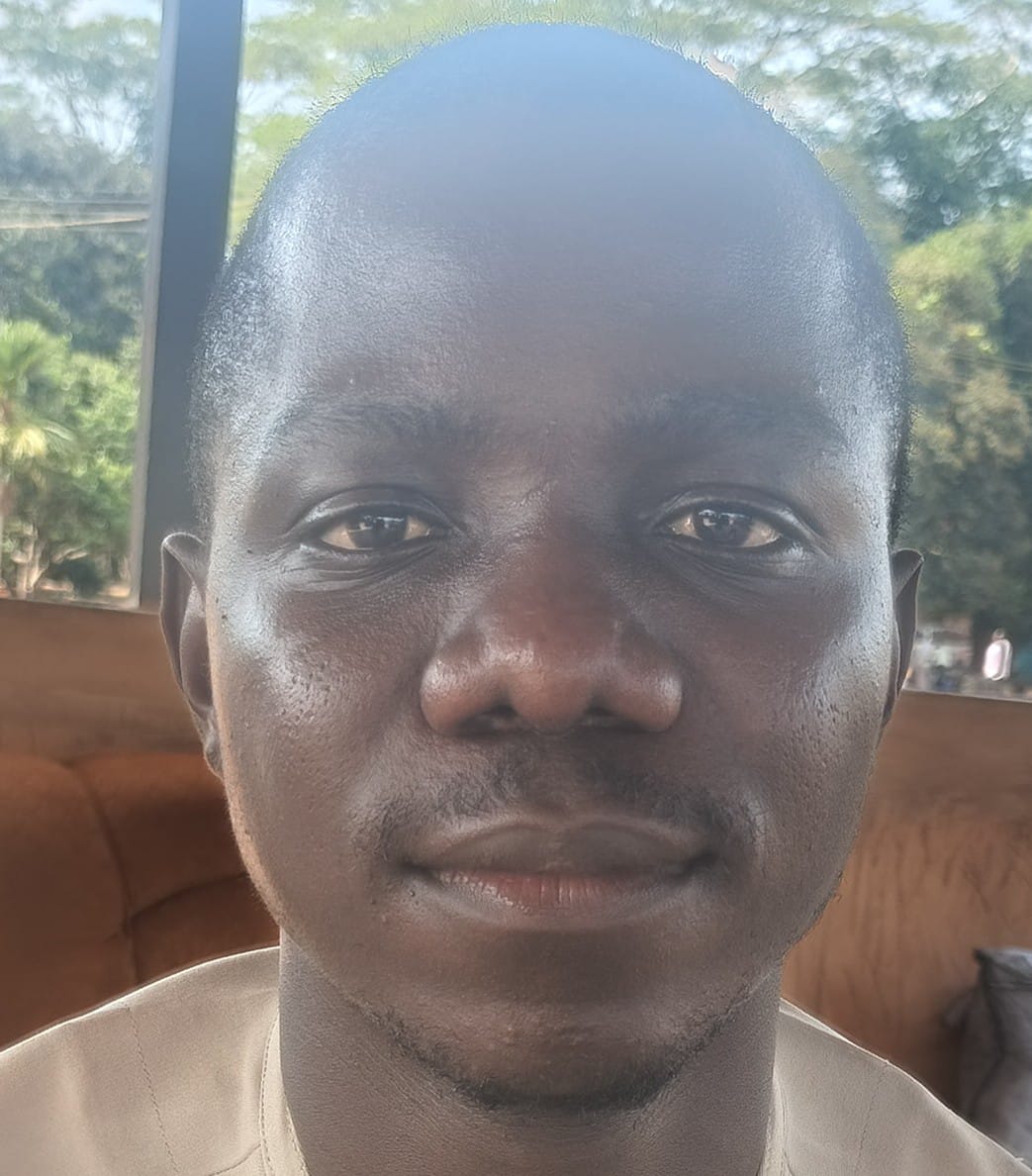By Lasisi Olagunju
A gentleman strolled into my office sometime ago and gave his surname as Adamasingba. In my almost thirty years in Ibadan, I had identified the name ‘Adamasingba’ solely with a stadium in the city. I never knew there was a family in Ibadan – or anywhere in Yoruba land – with that name. But here stood before me a man bearing that long, tongue-twisting sentence of a name. And, because I make trouble with questions, I asked my guest the meaning of the name he bore. At least, he should know. And he answered me: “It means ‘he who commits an offence and refuses to serve the sentence (a-dá-ràn-má-sin-igbà).’” He said the man who gave the family that name was a warrior; a strong man whose service to the land was so enormous as to make him too strong for the law to deal with, even when he violated the law. I was not shocked to hear that. I knew that such above-the-law stories dot almost every page of gallantry.
A thief was dragged before Bashorun Ogunmola, benevolent maximum ruler of Ibadan. His crime was that he stole a hunter’s game, a deer that struggled and died on his farm. But the accused did not deny stealing what he was accused of stealing. He simply told Ogunmola that when he saw the animal bleeding and gasping for breath, he remembered his feat at the warfront, how he faced enemy fire, carried the dead and rescued the wounded. “So, I told myself: I that carried human beings under a hail of bullets at the warfront, would I fail to carry away a mere animal at the fringes of my farm (èmi tí mo gbé omo ènìyàn l’áàárin ìjà, sé n ó a gbé omo eranko tì l’áàlà oko bí?).” Ogunmola heard him and shocked all around. He called the man a sacred cow, discharged and acquitted him and gave him a bottle of gin to wash down the meat he stole. Such reasonings explain why very bad sins are never committed by known soldiers. They explain why unknown soldiers carried the can of the destruction of Fela’s Kalakuta Republic.
But a nation of sacred cows is on the road to perdition. Unfortunately, in this country, we have always known that some institutions are hallowed and their operatives sacred. The judiciary is one. The military is one. Operatives of those two institutions believe they should normally be above rebuke, whatever their sin. When Lagos State governor, Babajide Sanwo-Olu, caught a soldier riding on a wrong lane and the soldier told him repeatedly: “Sir, I’m a soldier. I’m a soldier, sir”, he was sending a code, an invite, telling the governor to take it easy and inviting his attention to the ‘sacredness’ of the institution he worked for. That mindset may be repulsive to us bloody, cold civilians, but to those in the hot brotherhood of the sword, indulgence is what we owe them for their agreeing to fight and die so that we may live. Someone said wars are morbid human sacrifice ceremonies and soldiers scapegoats, sacrificial lambs on war platters. Historian and colonial administrator, Percy Talbot, in his ‘The Peoples of Southern Nigeria’ published in 1924, wrote about human sacrifice and the special place of its victims: “A person about to act as scapegoat (and who would) take upon himself the sins of the people and bring them good fortune was usually treated with the greatest respect and indulgence by all and given the best of everything..”
FROM THE AUTHOR: OPINION: The Scandals In Abuja
Soldiers are lambs of sacrifice; they are pampered and cosseted with indulgence. A soldier is coddled with velvet tanks and with thankfulness because of his life of sacrifice. He is allowed everything, including the freedom to die for his country, but he is not allowed to commit suicide or murder. When anyone, including a soldier, drives against traffic, he is likely to kill himself and/or kill innocent others. Towards the end of last year, a top politician in Ibadan was critically injured and his two legs amputated because a murderous individual drove against traffic and ran, head on, into his car. That is why the law says no rider or driver should face where the world backs. If they don’t kill or wreck themselves, they murder or destroy others. You heard Sanwo-Olu’s response when the traffic offender announced “I am a soldier, sir.” The governor’s response was: “That’s the more reason I’m going to lock you up.” A soldier’s life is especially precious – just as all lives. Apart from being an officer of the law who must obey and enforce the law, the society also has a duty to ensure that a soldier does not hurt himself or the society. We need the soldier because of tomorrow’s war. Indeed, all investments on him are directed towards that end. Nigerian culture scholar, Joseph Awolalu, in his ‘Yoruba Sacrificial Practice’ (1973), describes how persons being bred to die for the traditional Yoruba community were treated. He said “they were given all the good things that they asked for, except their liberty and their lives.” That is it. Think about that in relation to a soldier and society’s duty to protect him from himself. A society must be safe from its guard’s excesses and he must be kept safe because of the enemy outside. That is my reading of Sanwo-Olu’s arrest of that soldier on that Lagos road. The reason the offender’s “I am a soldier” code did not work.
Perhaps because of esprit de corps and the feeling of being special and sacred, one soldier came to his colleague’s defence and abused the governor in an online video post. He said soldiers were not under the control of any state governor and stressed that they “take orders” only from their bosses in the barracks. The outburst was not funny and I read a huge disapproval across the nation. I read reactions that said the governor was right to personally enforce the law of his state. I read reactions that said we are in a democracy and soldiers must submit themselves to the law and to civil authorities. I agree(d) with all of them. Then I read the cool comment of the Chief of Army Staff, Lieutenant General Taoreed Lagbaja. He was shown in Lagos a few days ago distancing the institution he heads from the action of that soldier who violated the law on the highway, and the one defending a soldier’s right to ride (and die) on one-way. Lagbaja said those two did not represent the values of the Nigerian Army and that the one who attacked the governor on social media had been arrested. He said: “I want to say that the soldier that was apprehended by the governor of Lagos State while plying one-way does not represent the Nigerian Army. In every respect, he contravened what we stand for, which is discipline. He also contravened the constitution and the law of Lagos State. We frowned at that as the army. The army has investigated that (other) soldier (who abused the governor online) and he has been apprehended and we are investigating.” That is what Lagbaja said and it is reassuring that our army is not “an army of anything goes.” Our country would be well and safe without an army of the uncouth. America’s first president, George Washington, in July 1759 said in a letter to some officers at the warfront that: “Discipline is the soul of an army. It makes small numbers formidable; procures success to the weak and esteem to all.”
FROM THE AUTHOR: OPINION: Pastor Adeboye And King-size Destinies
But, without sacrificing discipline and loyalty, can I plead for clemency – particularly for the traffic offender? I heard him say “sorry” more than once. Benjamin Franklin, one of the founding fathers of the United States, advised us to “never ruin an apology with an excuse.” Although the Lagos offender ruined his apology with the excuse of being a soldier, I still think he should be given another chance. Portia in Shakespeare’s ‘The Merchant of Venice’ says of mercy: it drops “as the gentle rain from heaven upon the place beneath…it blesses him that gives and him that takes.”
The other sacred cow we have is the judiciary. In discussing this bovine institution, I will hide behind the Supreme Court’s pronouncements of last week. Delivering judgments in several governorship election cases on Friday in Abuja, the Supreme Court used some words of rebuke for the Court of Appeal. One of the justices of the apex court described some decisions of the appeal court as “perverse.” Another lamented that “a lot of people have suffered” because of wrong judgments of the appeal court. That was an oblique reference to the situation in Plateau State where the lower court sacked the governor and all lawmakers who won elections on the platform of the PDP based on a law that was not in our law books. Another justice of the Supreme Court berated the appeal court judges for going into the issue of party membership, nomination and sponsorship of candidates in Kano, Zamfara and Plateau states. They did that in flagrant refusal to follow several decisions of the Supreme Court to the effect that a political party cannot challenge matters that are internal, including the primary election, of another. If a party did that, the law says it would be a meddlesome interloper. Our appeal court was found by the Supreme Court to have given such interlopers comfortable spaces in the chambers of justice.
Sixteen members of the Plateau State House of Assembly and eight National Assembly members from that state permanently lost their seats in November 2023 to deliberately wrong decisions and reasonings of the Court of Appeal. The fatal reasons behind the appeal court decisions have now been declared perverse by the Supreme Court. Let me be plain here: The Court of Appeal in November 2023 held that the PDP structure in Plateau State collapsed since 2020, therefore the party should not claim to have a structure to sponsor any candidate to contest an election. But that is not the law as clearly laid down by the Supreme Court in previous judgments. The National Working Committee of the party is the structure that the law recognises as the legal sponsor of candidates for elections. The Supreme Court said so a long time ago. And that precedent was supposed to bind the appeal court judges – but like the errant soldier in Lagos, they chose to drive against the traffic of the law. One after the other, the lead justice and his brothers gave the seats to the (unelected) opposition. Then they cavalierly applied the same reasoning to the governorship case and reached the same conclusion. The state governor, however, had the grace to proceed to the Supreme Court. He did and got delivered from the snares of the Court of Appeal’s fowler; the lawmakers are left stranded. They cannot go further than the court which served them injustice.
FROM THE AUTHOR: Shettima, Kokori: ‘Nigeria Go Better’ [OPINION]
Our law, as of today, says those judicially robbed lawmakers cannot seek any remedy for the fatal wrong; the Court of Appeal is legally their last bus stop. But should those victims just go quietly into the night, their mandates frozen forever in the winter of judicial banditry? Just like that? Should they and the law watch the inheritors of stolen chariots ride daily to the capitol to make laws for ‘good governance’? What options do the victims have and what advice should they get? I remember my law teacher’s cliché: for every wrong, there is a remedy. I believe he was right here. He was right in telling me also that where and whenever my right is invaded or destroyed, the law gives a remedy to protect it or award damages for its loss. I also believe the teacher when he added that where and whenever my right is denied me, the law is there to afford the remedy of an action for its enforcement. He said every lawyer knows this to be true and that the words he used were harkened words of justice any student of law would find even in elementary law books. The principle here, he said, is clothed with the Latin phrase: ubi jus ibi remedium (where there is a right, there is a remedy). The teacher told me further that the court has a range of remedies to choose from: They could be declarative, they could be preventive, or coercive, or compensatory and/or restitutionary. He said he was quoting Hammond J who asked with uncommon depth that “if we were drawing up a remedies scheme de novo, would we not include a basket of all the potential modes of relief, and leave it to a court to select that which is appropriate in a given case?” The court here is the court of the Chief Justice of Nigeria and the National Judicial Council. Will they be willing to bell this cat and set a precedent in demolishing this castle of injustice?
A judge deliberately delivers a rogue judgment, fatally wounding a party, and he gets promoted. The appeal court judge who signed the disgraceful ‘hybrid’ judgment on Kano governorship is now, with uncommon grace, at the Supreme Court. The ones who rode against the traffic of the law and justice, who closed their eyes and delivered injustice in Plateau State are counting their blessings in their cozy quarters. You see, the ground of Nigeria no level at all. A medical doctor prescribes the wrong drug which leads to death and he loses his licence. Why is it that there are punishments for negligent doctors whose bad judgments lead to deaths, and there is no punishment for judges whose bad judgments lead to irreversible injuries – even death? The only answer is that they are not just cows; they are sacred. ‘No matter what we do/We are going higher’ is the song in the Nigerian judiciary.
The soldier who offended Lagos traffic law was contrite with an effusion of sorries. You would never hear a word of remorse from those judges who turned the law upside down and ignored the Supreme Court and the laid-down precedents. How should we, therefore, treat the arrogant sickness of the courts? An American lawyer, Jean Teillet, in a February 2018 article wrote that “to believe in justice, we must probe our sacred cow: the system itself.” Teillet, while urging her compatriots to “let’s fix” the broken judiciary, said “the cost of doing nothing has already brought the justice system into disrepute.” If those words came from a Nigerian today, they would fit into our situation. That is why I beg to ruffle some feathers by asking that the ‘secular’ robes of errant judges be made profane and the masquerader’s costume rent. About 31 years ago, Justice Olajide Olatawura sat in our Supreme Court and addressed an issue as this. He prescribed what should be the system’s reaction to judges to whom the obligations inherent in the doctrine of ‘stare decisis’ are matters determined by their capricious tastes and dispositions. Olatawura said: “The hierarchy of courts shows the limit and powers of each court. Therefore, to defy the authority and powers of a higher court appears undesirable and distasteful…A refusal by a judge of the court below to be bound by the decision of this court is gross insubordination and such a judicial officer is a misfit in the judiciary…” Those words are not mine; they came straight from the pantheon of truly great men, builders of today’s throne for today’s men of law. We may ignore them, and we will, especially since we appear to hold that our judges are like Ibadan’s Adamasingba – they sin without consequences.




























